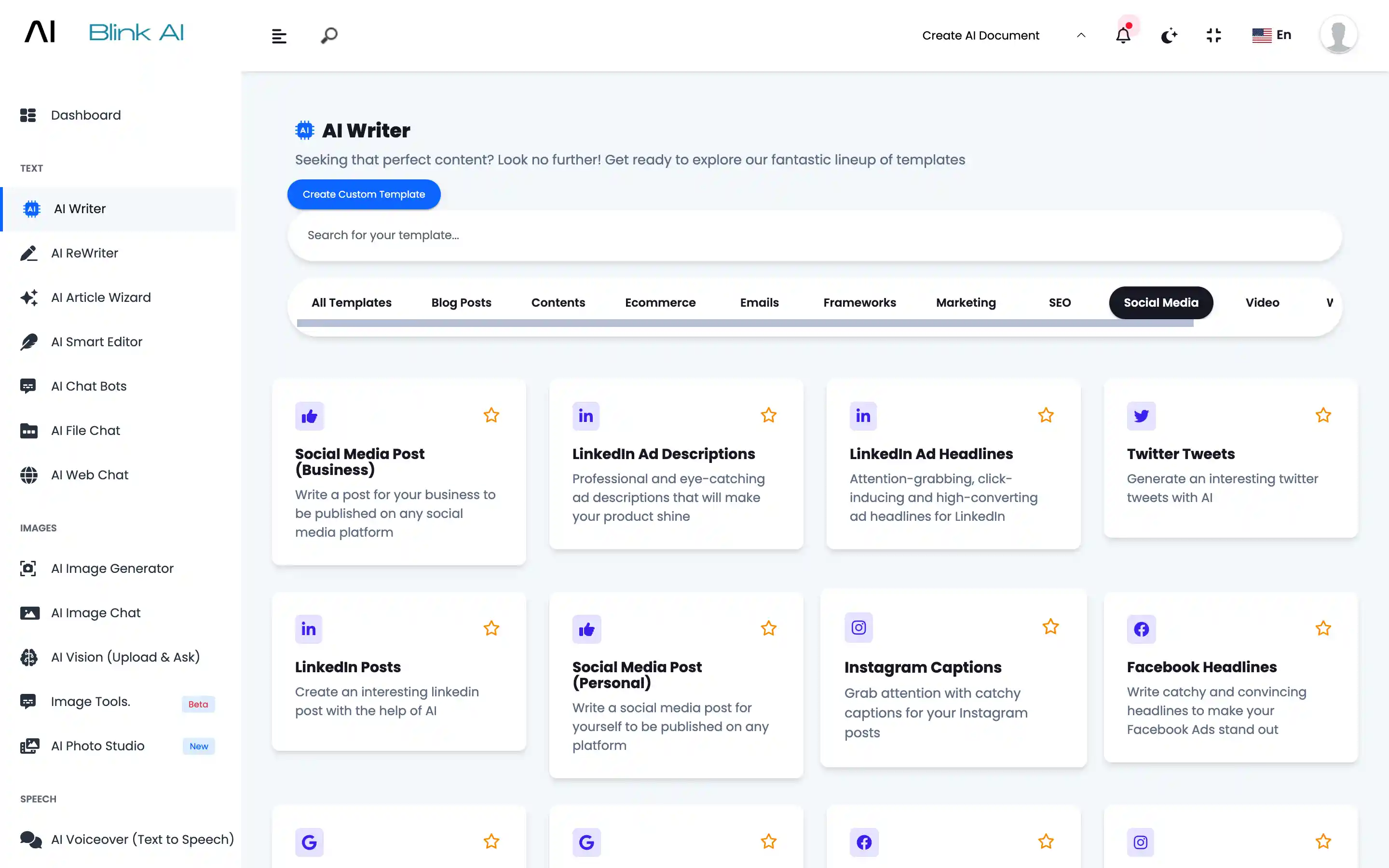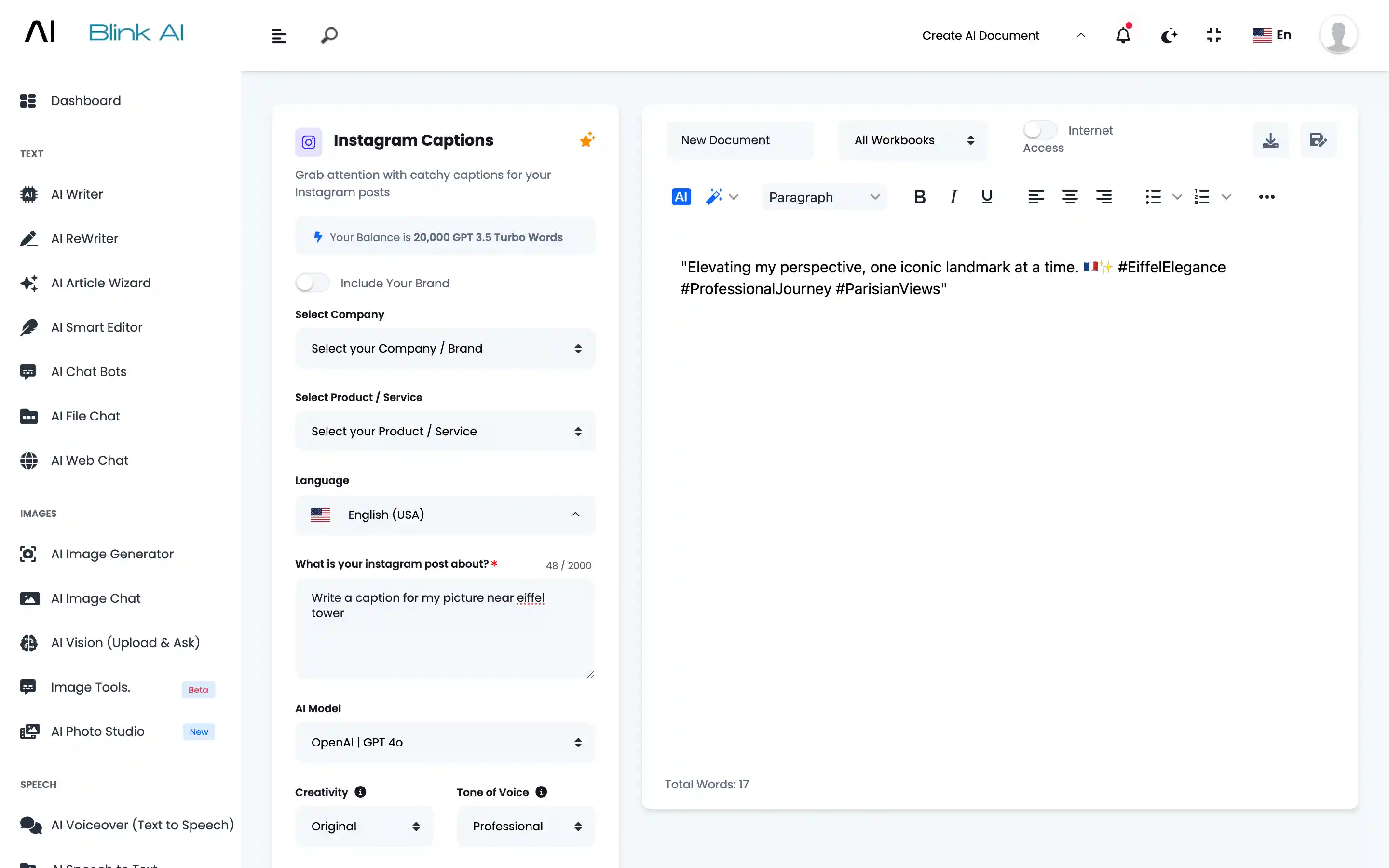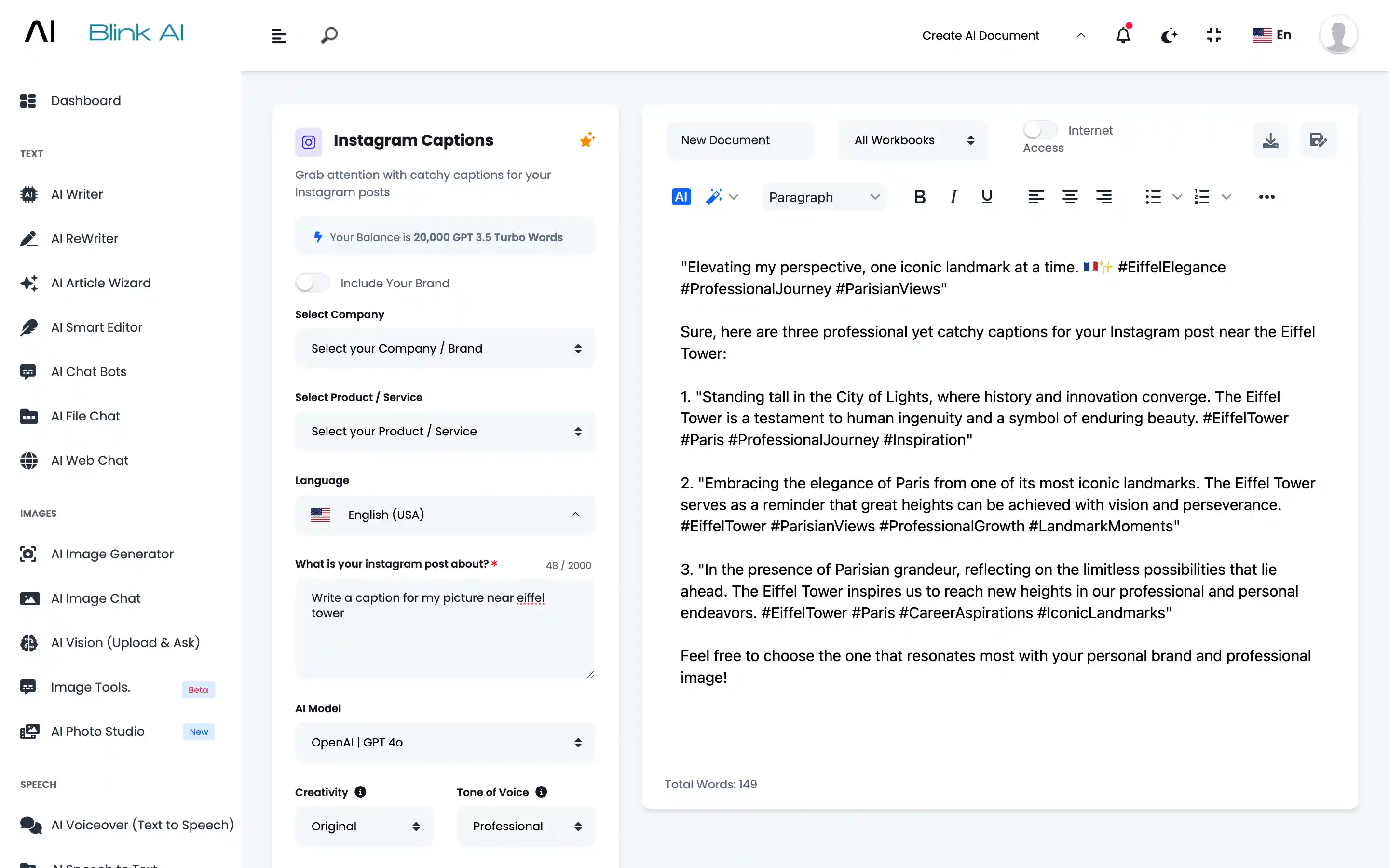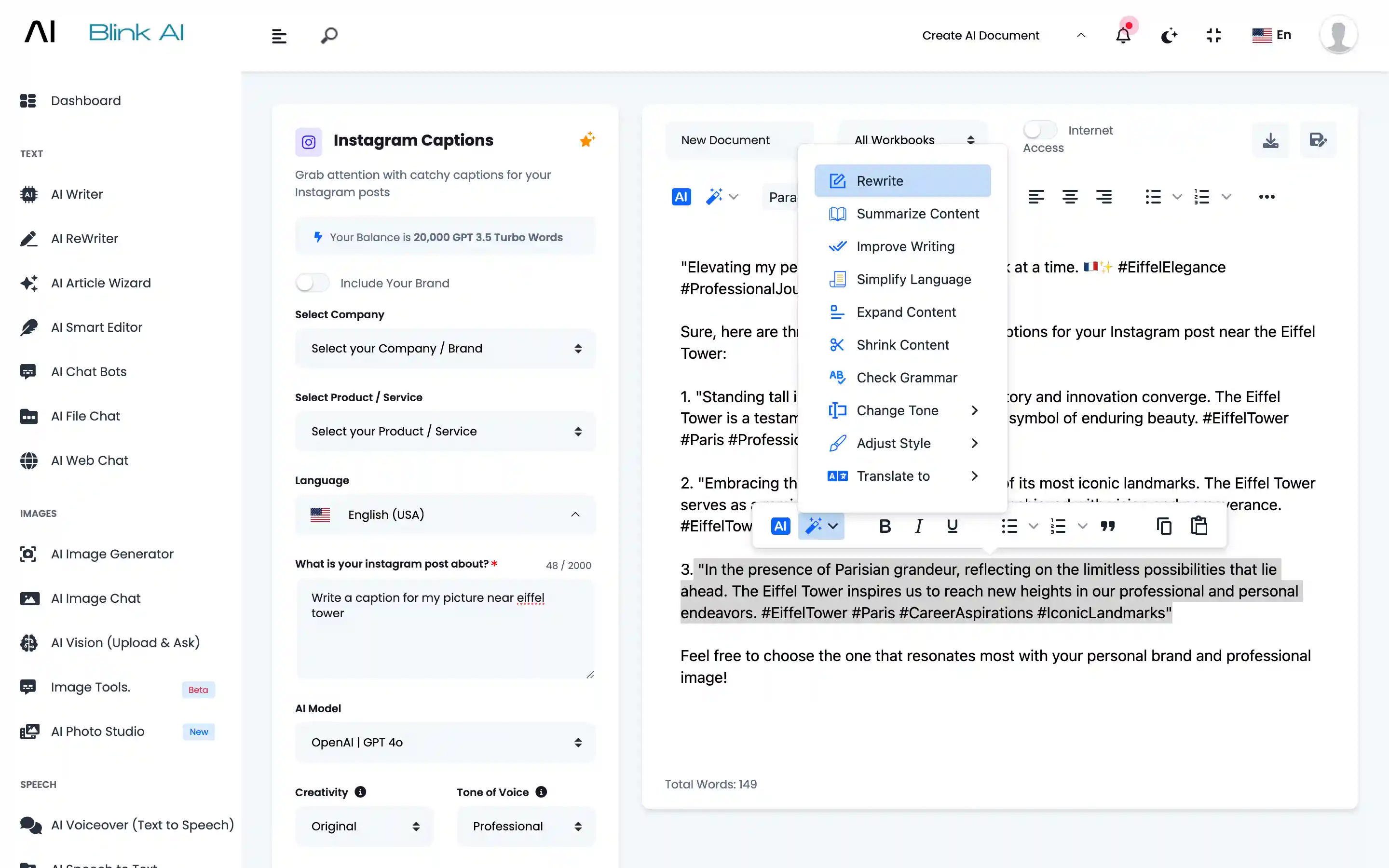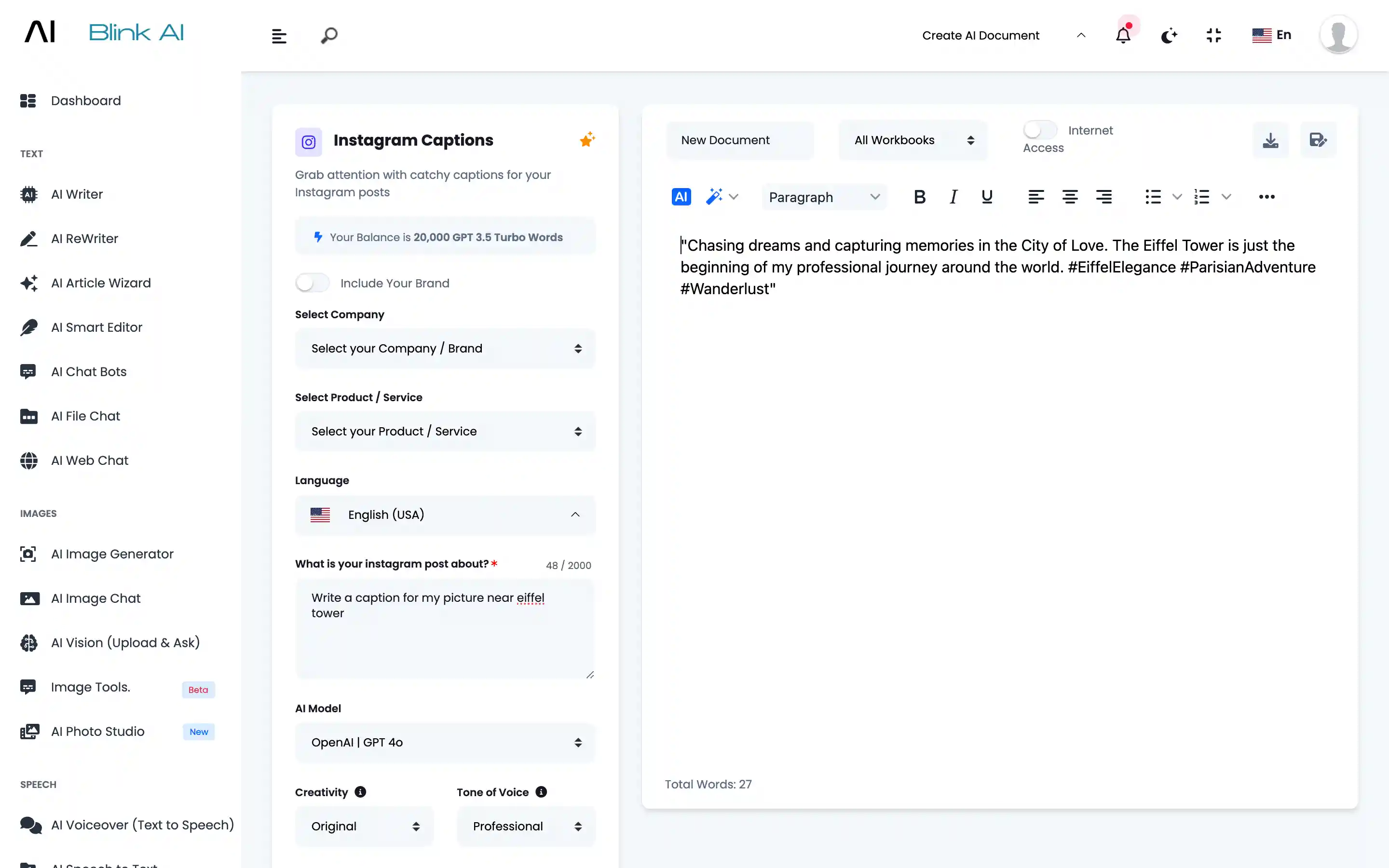Meet, BlinkAI – AI Content Generator: Text, Image, Video, Voice & Code
Testimonials / Reviews
One platform to generate all AI contents





AI Testimonials / Reviews
Add social proof to your website by generating user testimonials
About Testimonials / Reviews
Adding social proof to your website through user testimonials can significantly enhance your credibility and influence potential customers' purchasing decisions. Here’s a comprehensive guide on how to effectively generate and display user testimonials on your website: Build Trust: Testimonials from satisfied customers can build trust and reassure potential buyers about the quality and reliability of your products or services. Increase Conversions: Positive reviews and testimonials can persuade visitors to take action, thereby increasing conversion rates. Enhance Credibility: Real experiences from real customers lend authenticity and credibility to your brand. Ask Directly: Reach out to satisfied customers via email or social media and ask them to share their positive experiences. Personal requests can be very effective. Incentivize Reviews: Offer incentives like discounts, freebies, or loyalty points for customers who leave detailed testimonials. Simplify the Process: Make it easy for customers to leave reviews by providing clear instructions and accessible platforms. Specific Questions: Guide customers by asking specific questions that elicit detailed and useful responses. For example, ask about their favorite feature, how the product solved a problem, or their overall experience. Templates and Examples: Provide templates or examples of good testimonials to help customers understand what you’re looking for. Email Campaigns: Send follow-up emails after a purchase to request testimonials. Include a direct link to where they can leave their review. Social Media: Leverage social media platforms to gather testimonials. Encourage customers to share their experiences using a specific hashtag or by tagging your business. Review Platforms: Utilize third-party review sites like Yelp, Google Reviews, or Trustpilot, and integrate these reviews into your website. Concise and Clear: Edit testimonials for clarity and conciseness, but ensure the customer’s voice and authenticity are preserved. Highlight Key Points: Emphasize the most compelling parts of the testimonials to make them stand out. Include Details: Where possible, include the customer’s name, photo, and other relevant details like their job title or company to add authenticity. Homepage: Feature key testimonials prominently on your homepage to immediately establish trust with new visitors. Dedicated Page: Create a dedicated testimonials or reviews page where visitors can read a collection of customer experiences. Product Pages: Include relevant testimonials on individual product pages to provide social proof right where buying decisions are made. Sidebar and Footer: Use sidebars or footers to display rotating testimonials across different pages of your website. Text Testimonials: Simple and effective, text testimonials are easy to collect and display. Video Testimonials: Videos can be more engaging and provide a more personal touch. Encourage customers to share short video reviews. Case Studies: Develop in-depth case studies from detailed customer stories. Highlight how your product or service solved a specific problem. Plugins and Widgets: Use website plugins or widgets to display testimonials dynamically. Tools like Yotpo, TrustPulse, or WP Customer Reviews can simplify the process. Real-Time Updates: Ensure testimonials are updated regularly to reflect the latest customer experiences and maintain credibility. Email Newsletters: Feature customer testimonials in your email campaigns to reinforce trust and encourage engagement. Social Media: Share testimonials on your social media channels to reach a broader audience and enhance your brand’s reputation. Subject: We’d Love Your Feedback! Hi [Customer Name], Thank you for choosing [Your Company/Product]! We hope you’re enjoying your experience. We would greatly appreciate it if you could share your feedback with us. Your testimonial helps us improve and helps others learn about the benefits of our product. [Leave a Testimonial Here] As a token of our appreciation, you’ll receive a 10% discount on your next purchase! Thank you for your support! Best regards, Adding social proof to your website through user testimonials can significantly enhance your brand’s credibility and increase conversions. By encouraging customers to share their positive experiences, providing clear guidelines, and displaying testimonials effectively, you can leverage the power of social proof to build trust and attract more customers. Regularly update and promote your testimonials to maintain authenticity and keep your content fresh.1. Understand the Importance of Social Proof
2. Encourage Customers to Leave Testimonials
3. Provide Clear Guidelines
4. Collect Testimonials
5. Format and Edit Testimonials
6. Display Testimonials Effectively
7. Use Different Formats
8. Leverage Social Proof Widgets
9. Promote Testimonials
Example of a Testimonial Request Email:
[Your Name]
[Your Position]
[Company Name]
Conclusion
Steps for AI Writing
Start Writing Content in 3 Easy Steps
1
Step 1
AI Writer Section
Go to AI Writer section and select a template
2
Step 2
Details
Provide brief details about your requirement
3
Step 3
Generate
Generate, amend and save content
Discover AI Writer
How To Use Blink AI's AI Writer for Content Creation
Go to AI Writer Section
Choose from 70+ AI Writing Templates or Create your Own Template
Describe
You can provide details like what is the exact requirement. How many outputs you want. Which AI model you want to use.
Generate
Content will be generated based on your input.
Amend
Select the content you want to amend. Click on the Magic Wand to amend Generated Content.
Fresh Output
Fresh output will be generated. You can save it in Workbooks.
